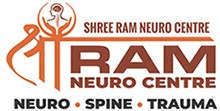Migraine Treatment: Finding Relief for Debilitating Headaches
Introduction
Are you one of the millions of people who suffer from debilitating migraines? If so, you know just how painful and disruptive these headaches can be. Migraines can significantly impact your quality of life, interfering with work, social activities, and even simple daily tasks. The good news is that there are various effective migraine treatment options available to help manage and reduce the frequency and severity of your migraines. In this article, we will explore different migraine treatments and provide you with valuable information to find relief from this chronic condition.
Understanding Migraines: Causes and Symptoms
Before diving into the different treatment options, let’s first understand what migraines are and how they can affect individuals. Migraines are not just ordinary headaches; they are a neurological condition that manifests as severe, pulsating pain on one side or both sides of the head. Common symptoms include nausea, sensitivity to light and sound, and visual disturbances. Migraines can be triggered by various factors such as hormonal changes, stress, certain foods, and even environmental factors.
Over-the-Counter Medications: Quick Relief for Mild Migraines
For individuals experiencing mild migraines, over-the-counter medications can provide fast relief. Nonsteroidal anti-inflammatory drugs (NSAIDs) like ibuprofen and aspirin can help alleviate pain and reduce inflammation. These medications work by blocking the production of certain chemicals in the body that contribute to pain and inflammation. It is important to follow the recommended dosage instructions and consult a healthcare professional if migraines persist or worsen.
Prescription Medications: Preventing and Treating Migraines
In cases of moderate to severe migraines or frequent migraine attacks, prescription medications are often required. There are several types of prescription medications available for both preventing and treating migraines.
- Triptans: Triptans are a class of medications that work by constricting blood vessels and reducing inflammation in the brain. They are usually taken at the onset of a migraine attack and can provide relief within a few hours. Triptans are available in different forms such as pills, nasal sprays, and injections.
- Beta-blockers: Beta-blockers are commonly used to treat high blood pressure, but they can also be effective in preventing migraines. These medications work by relaxing blood vessels and reducing the frequency and intensity of migraines. Beta-blockers may be prescribed for individuals who experience frequent migraines.
- Antidepressants: Certain antidepressants, such as amitriptyline, can be prescribed for migraine prevention. These medications help regulate the levels of certain chemicals in the brain that can trigger migraines. They are often prescribed for individuals with chronic migraines or those who do not respond well to other types of medications.
Alternative Therapies: Exploring Non-Medical Approaches
In addition to medication-based treatments, there are also alternative therapies that can be used to manage migraines. These therapies focus on holistic approaches and have shown promising results in providing relief from migraines. Some popular alternative therapies include:
- Acupuncture: This ancient Chinese practice involves inserting thin needles into specific points on the body to restore the flow of energy. Many individuals find acupuncture helpful in reducing the frequency and severity of migraines.
- Biofeedback: Biofeedback is a technique that teaches individuals to control certain bodily functions, such as muscle tension and heart rate. By learning to recognize and control the body’s response to stress, individuals can effectively manage migraines and lessen their impact.
- Relaxation techniques: Practices like deep breathing exercises, meditation, and progressive muscle relaxation can help reduce stress and tension, which are common triggers for migraines.
Lifestyle Changes: A Holistic Approach to Migraine Management
In addition to medical treatments and alternative therapies, making certain lifestyle changes can contribute to the overall management of migraines. Here are some lifestyle modifications that may help in preventing migraines:
- Regular exercise: Engaging in regular physical activity can improve overall health and reduce the frequency of migraines. Aim for at least 30 minutes of exercise most days of the week.
- Healthy eating: Identify and avoid foods that commonly trigger migraines, such as aged cheeses, processed meats, and alcohol. Instead, opt for a balanced diet rich in fruits, vegetables, whole grains, and lean proteins.
- Stress management: Find healthy coping mechanisms to manage stress, such as engaging in hobbies, practicing relaxation techniques, or seeking therapy. Stress is a known trigger for migraines, so reducing stress levels can significantly improve migraine management.
Conclusion
Living with migraines doesn’t have to be a constant struggle. By exploring different treatment options, including medications, alternative therapies, and making lifestyle modifications, individuals can find relief and regain control over their lives. It is essential to work with a healthcare professional to develop a personalized migraine treatment plan that best suits your needs. Remember, everyone’s journey with migraines is unique, but with the right approach, you can discover effective strategies to manage and minimize the impact of migraines on your well-being.


